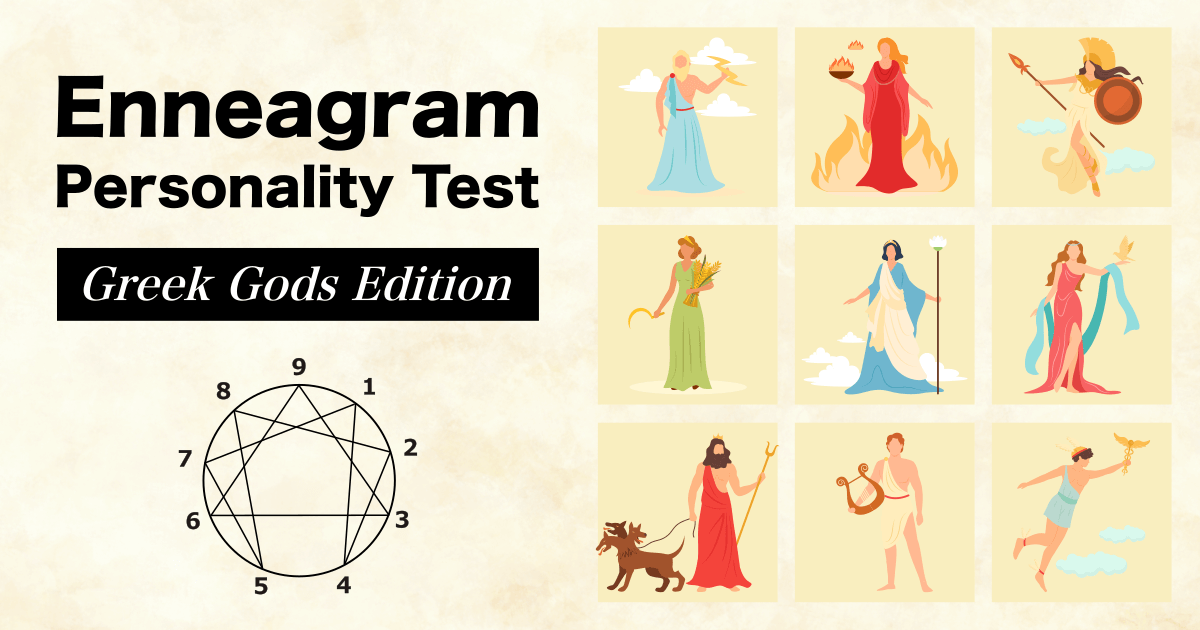
The Enneagram is a personality theory that classifies personalities into nine types. This test will tell you your Enneagram type and which Greek god has the same type of personality as you. Get the wisdom to brighten your life through this test.
The Enneagram is a personality framework that classifies people into nine core types.It is not a medical diagnosis or a form of fortune-telling.Instead, it is commonly used as a tool for self-understanding,focusing on the motivations, values, and fears that shape how people think and act.Its origins trace back to ancient traditions,and it was later refined in modern contexts for personal growth and psychological insight.
One of the defining features of the Enneagram is its focus on inner motivation rather than outward behavior.Even when two people behave in similar ways,their Enneagram types may differ depending on what drives them internally.The Enneagram also views personality as dynamic,meaning that how a type is expressed can change depending on mindset, stress, and life circumstances.
This type is driven by a strong sense of integrity and a desire to improve the world.They are responsible and self-disciplined,but may struggle with perfectionism and being overly critical of themselves and others.
This type finds meaning in being helpful and emotionally supportive.They are caring and empathetic,but may neglect their own needs in order to feel needed or appreciated.
This type is motivated by success, achievement, and efficiency.They are adaptable and goal-oriented,but may place too much value on external recognition and results.
This type values authenticity and emotional depth.They tend to be sensitive and expressive,but may experience feelings of longing or emotional isolation.
This type seeks understanding through knowledge and observation.They are analytical and independent,but may withdraw too much from relationships and emotional engagement.
This type prioritizes security, trust, and preparedness.They are loyal and responsible,but often struggle with anxiety and self-doubt.
This type is driven by a desire for freedom, enjoyment, and new experiences.They are optimistic and energetic,but may avoid dealing with discomfort or emotional pain.
This type values strength, independence, and control.They are decisive and protective,but can sometimes come across as intense or intimidating.
This type seeks harmony and inner stability.They are accepting and easygoing,but may downplay their own priorities in order to avoid conflict.
In the Enneagram, each type may also be influenced by one of its neighboring types.This influence is referred to as a wing.Wings help explain individual differences within the same Enneagram type.Your Enneagram Personality Test results will also show your wing.
Even people with the same Enneagram type can express their personality in very different ways.The Enneagram describes this through Levels of Development.Each type can appear in healthy, average, or unhealthy states,depending on mindset, stress, and life circumstances.Your results reflect your current tendencies rather than a fixed or permanent condition.
This Enneagram Personality Test is intended for self-understanding and reflection.It does not provide medical, psychological, or clinical diagnoses.
The results describe personality tendencies rather than absolute truths.Please use them as a guide for self-awareness,not as labels that limit growth or define who you are.